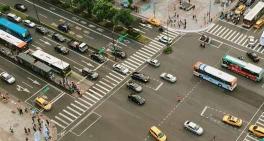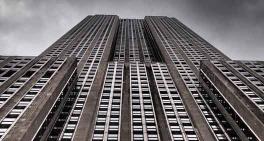Trump visit stirs debate; massacre defendant in court
Featured Legal News
The man charged in the Pittsburgh synagogue massacre was brought into court in a wheelchair Monday, as some members of the Jewish community and others objected to President Donald Trump’s plans to visit, accusing him of contributing to a toxic political climate in the U.S. that might have led to the bloodshed.
With the first funerals set for Tuesday, the White House announced that Trump and first lady Melania Trump will visit the same day to “express the support of the American people and to grieve with the Pittsburgh community” over the 11 congregants killed Saturday in the deadliest attack on Jews in U.S. history.
Some Pittsburghers urged Trump to stay away. “His language has encouraged hatred and fear of immigrants, which is part of the reason why these people were killed,” said Marianne Novy, 73, a retired college English professor who lives in the city’s Squirrel Hill section, the historic Jewish neighborhood where the attack at the Tree of Life synagogue took place.
Meanwhile, the alleged gunman, 46-year-old truck driver Robert Gregory Bowers, was released from the hospital where he was treated for wounds suffered in a gun battle with police. Hours later he was wheeled into a downtown federal courtroom in handcuffs to face charges.
A judge ordered him held without bail for a preliminary hearing on Thursday, when prosecutors will outline their case. He did not enter a plea.
During the brief proceeding, Bowers talked with two court-appointed lawyers and said little more than “Yes” in a soft voice a few times in response to routine questions from the judge. Courtroom deputies freed one of his cuffed hands so he could sign paperwork.
Related listings
-
Court to hear case over ID of Texas execution drug supplier
Featured Legal News 10/20/2018The Texas Supreme Court has reversed itself and granted the state's request to review a case dealing with the disclosure of an execution drug supplier that officials have fought for years to keep secret.The Texas Supreme Court on Friday approved the ...
-
Supreme Court wrestles with case on detention of immigrants
Featured Legal News 10/11/2018The Supreme Court wrestled Wednesday with a case about the government’s ability to detain certain immigrants after they’ve served sentences for committing crimes in the United States. Several justices expressed concerns with the governmen...
-
Missouri court lets redistricting initiative go to voters
Featured Legal News 09/22/2018A Missouri appeals court panel cleared the way Friday for voters to decide a November ballot initiative that could shake up of the state Legislature by requiring districts to be drawn to achieve "partisan fairness" and imposing new lobbying limits.Th...

New Rochelle, New York Work Accidents Lawyers
It doesn’t matter what type of work you do or where you work, you can always be at risk of injuring yourself at your work no matter how safe you may think it is. Accidents in the workplace are often caused by unsafe work conditions arising from ignoring safety rules, overlooking maintenance or other negligence of those in management. Work accidents can cause serious injuries and sometimes permanent damage. Some extremely serious work injuries can permanently hinder a person’s ability to get around and continue their daily duties.
Factors that affect one’s quality of life like place of work, relationships with friends and family, social standing can all be taken away quickly by a work injury. Although, you may not be able to recover all of your losses, you may be entitled to compensation as a result of your work injury. In order to ensure that you and your loved ones receive the best outcome, make sure you have the help of an experienced New Rochelle, New York workplace injury lawyer you deserve. We can get you on your way to filing a claim against the responsible party. If you have been injured at your place of work it is important to know your options by seeking legal action. Kommer Bave & Ollman LLP offers a free case evaluation where we will answer any questions you may have and explain your legal options. Call us at 914-633-7400 or contact our firm to schedule a free consultation with an experienced attorney.




